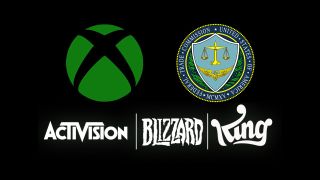FTC vows to keep trying to block Microsoft's controversial acquisition of Activision
Activision states that they're working with Microsoft to close the deal before its October 18 deadline.

What you need to know
- The FTC in the US announced it would continue internal efforts to block Microsoft's acquisition of Activision Blizzard King.
- The FTC previously failed to secure a preliminary injunction or emergency stay from the courts to prevent the acquisition from closing.
- Microsoft's $69 billion acquisition of Activision Blizzard King has undergone regulatory scrutiny from the EU, UK, and US market authorities.
- The acquisition's deadline to close was extended until October 18.
- Activision CCO/EVP Lulu Cheng Meservey tweeted a response to the FTC announcement.
The FTC has announced that it will continue its administrative case against Microsoft to stop the software company from closing its $69 billion acquisition of Activision Blizzard King.
The FTC Commission, "in the public's best interest", has decided to conduct a comprehensive investigation of the merger and will reopen the adjudication process.
Microsoft announced its intention to purchase the publisher behind AAA blockbuster games Call of Duty, Diablo, and Overwatch, as well as the mobile powerhouse Candy Crush in January 2022. The original deal was scheduled to close by July 2023, pending approval from global market regulating authorities.
In contrast, more than 40 authorities globally approved the deal, while the UK, US, and EU commissions found cause for concern with the potential merger.
FTC vs. Microsoft: A (not so brief) history
The FTC filed a motion with the District 9 courts in Northern California for a preliminary injunction to stop the deal's closing. This led to an evidentiary hearing complete with under-oath testimony from Xbox and Microsoft leadership. Judge Jacqueline Scott Corley presided over the hearing, and on July 10, she declined the FTC's request for a preliminary injunction. On July 12, she further denied the FTC's appeal of her initial decision.
Microsoft filed a motion for the FTC to withdraw from adjudication on July 18, which was granted. July 18 was the original deadline for the Activision deal to close, but the CMA in the UK had rejected the acquisition outright. Microsoft and Activision ultimately extended the deadline to find a solution to appease the CMA's cloud gaming concerns. The new deadline for the deal to close is October 18.


Despite the FTC granting the withdrawal in July, the Commission has determined that it is within the public's best interest to investigate the merger thoroughly and will reopen adjudication. The FTC has ordered a new evidentiary hearing to occur 21 days after the United States Court of Appeals issues an opinion on the FTC's appeal of the requested preliminary injunction.
Get the Windows Central Newsletter
All the latest news, reviews, and guides for Windows and Xbox diehards.
As with previous hearings, the hearing ordered by the FTC for this case will be available for the public via a live web stream.
The CMA has recently issued provisional approval of the acquisition due to Microsoft's announcement that it would partially divest its cloud streaming rights to Activision's content catalog. A final ruling from the CMA is expected by the October 18 deadline.
Lulu Cheng Meservey, the CCO and EVP for Activision Blizzard, tweeted a statement regarding the FTC's order. In the tweet, Meservey reiterates that Activision is focused on working with Microsoft to close the deal. "How the FTC uses limited taxpayer resources is their decision," Meservey said.
In response to questions about this: we’re focused on working with Microsoft toward closing.How the FTC uses limited taxpayer resources is their decision. https://t.co/4NTulgQeBASeptember 27, 2023
Microsoft and Activision can continue to close the acquisition despite the FTC's efforts, provided an emergency injunction is not issued by the court prior to October 18.

Cole is the resident Call of Duty know-it-all and indie game enthusiast for Windows Central. She's a lifelong artist with two decades of experience in digital painting, and she will happily talk your ear off about budget pen displays.